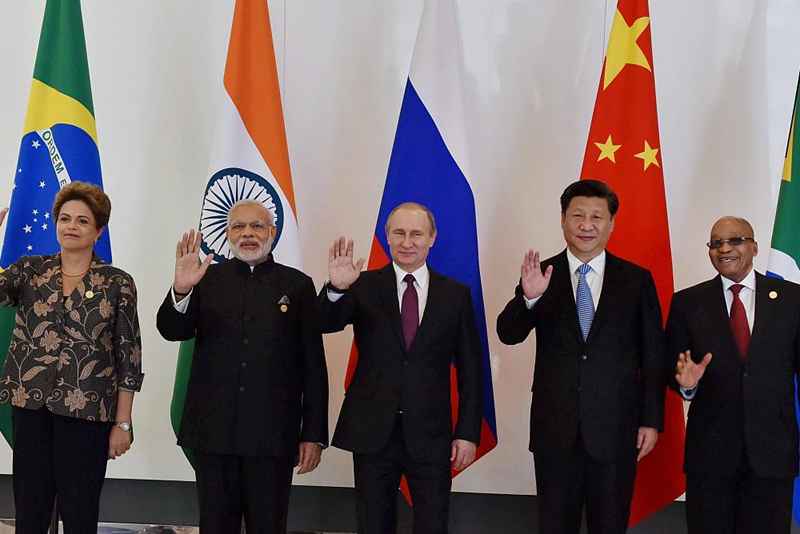
Prime Minister Narendra Modi said on Sunday that India looks forward to a concrete outcome in Paris within the framework of the UN Convention on Climate Change that should have an appropriate balance of collective action: equity and common but differentiated responsibility and respective capabilities.
While India has “ambitious” plans for addressing the challenges of climate change, the country doesn’t see development and climate change as competing objectives, the Prime Minister said in the lead intervention at the G20 inaugural session at Antalya, Turkey. The ambitious plans, he said, include additional capacity of 175 GW of renewable energy by 2022 and cuts in subsidies on fossil fuel alongside a tax on coal.
He also mentioned the proposed $3 billion National Clean Energy Fund aimed at promoting clean technologies. “With our highly ambitious Intended Nationally Determined Contributions (INDCs), India would remain in step with the world,” Mr. Modi said.
Development in harmony with nature is the goal of his joint proposal with French President Hollande for an alliance of solar-rich countries at the time of COP-21 meeting later this year, the Prime Minister announced.
He also urged the leaders to ensure that the target of $100 billion climate finance per year by 2020 is met. “We should shift from carbon credit towards green credit”.
The multilateral institutions’ imposition of difficult safeguards and conditions on climate finance loans could become barriers to development and undermine sustainable development, Mr. Modi cautioned.
Mr. Modi called for the G20 to place priority on effective implementation of Sustainable Development Agenda 2030 and ensure adequate funding for it, which, he said, will stimulate faster, more broad-based economic growth. “This creates the right balance between growth, development, human welfare and environment.”
The G20’s continued call to Central Banks for careful communication on monetary policy actions, he said, will be helpful in keeping financial and currency markets stable. “To stimulate growth, we need to enhance public investments, not just rely on monetary policy,” Mr. Modi said at a time there are concerns about the spillover effects of the unwinding of the US Federal Reserve’s unconventional policies of quantitative easing.
Earlier, speaking at a BRICS–Brazil, Russia, India, China and South Africa—nations’ leaders meeting Russian President Vladimir Putin hosted in Antalya, ahead of the G20 Leaders Summit, Mr. Modi demanded that the target lowering of the cost of global remittances be advanced to sooner than 2030 and made a case for close coordination on preventing corruption and cooperation on freezing of unaccounted money hoarded abroad and its repatriation.
He cautioned against new trading blocs leading to division of the global trade regime, called for the strengthening the rule-based global trading system and the speeding up the completion of the Doha Development Agenda of the World Trade Organisation. Mr. Modi’s remarks come in the wake of the US finalising the Trans Pacific Partnership pact.
BRICS can give shape to G20, Mr. Modi said at the meeting that is being seen as a signal from the BRICS nations to the developed countries of their rising significance in global matters. “There was a time when the logic of BRICS and its lasting capacity were being questioned…We have provided proof of the relevance and value of BRICS through our actions…and, this has come at a time of huge global challenges”.
The New Development Bank, the Currency Reserve Arrangement, Strategy for BRICS Economic Cooperation are clear evidence of the BRICS’ vision and resolve, said Mr. Modi. “Together, we can also give shape to G20.”
The meeting was also attended by Chinese President Xi Jinping, President of South Africa Jacob Zuma and President of Brazil Dilma Rousseff.
Speaking of India’s imminent assumption of the chairmanship of BRICS from 1st February, 2016, the Prime Minister said: “India attaches the highest importance to BRICS”.
The theme of India’s BRICS Chairmanship will be “Building Responsive, Inclusive and Collective Solutions” or ‘BRICS’.
“The Strategy for BRICS Economic Cooperation, which we endorsed in Ufa, is an important framework document,” Mr. Modi reiterated.
He assured China of India’s support during its presidency of G20. China is set to take over the rotating presidency of the G20 starting in December 2015.
Prime Minister Modi also strongly condemned the dreadful acts of terrorism in Paris and expressed deepest sympathy and support to Russia for the loss of life in Sinai. He spoke of the need for a united global effort to combat terrorism has never been more urgent.